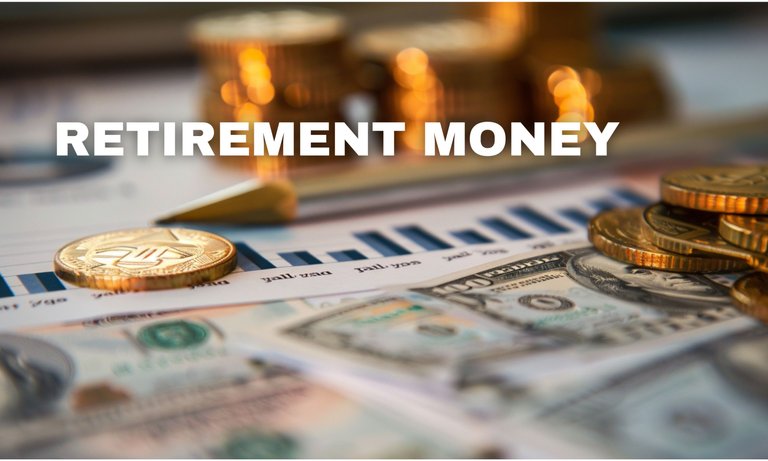Investing For Your Future Self

I have been interested in money lately and I have mostly been interested in making my money work to make more money. And so for a few years now I have invested regularly. They're small amounts (what I can afford at the time) but they're steadily growing and everything I personally invest in except for some crypto are assets that pay some sort of dividend in one way or another.
I've learned to really keep my money pretty tight, we don't spend very much without thinking about it and we now have a plan to invest smartly.
We do it by Dollar Cost Averaging up and down, and concentrating on assets that actually pay... I don't want to speculate on price.
How does investing on a regular basis beat trading and what is the proof
Investing on a regular basis tends to outperform trading over the long run due to several key reasons, backed by substantial evidence:
The power of compounding works best for long-term investors. As investments are held for longer periods, the returns earned start compounding on themselves, leading to exponential growth over time[1]. Traders miss out on this compounding effect due to frequent churning of their portfolios.
Investing captures the full upside of long-term stock appreciation. Stocks tend to rise over multi-year periods as companies grow their earnings and valuations expand. Traders often miss out on these extended rallies by exiting positions prematurely[1].
Lower costs and tax efficiency favor investing. Investing involves lower transaction costs compared to frequent trading. Long-term capital gains are also taxed at lower rates than short-term trading profits[1][2].
Timing the market is extremely difficult for traders. Missing even a few of the best trading days can severely impact overall returns, as evidenced by the S&P 500 study showing that missing the 30 best days led to negative returns over 21 years[1].
Diversification reduces risk for investors. Investors can hold a diversified portfolio of stocks or funds, mitigating company-specific risks. Traders often concentrate in a few positions, increasing their risk[2].
The proof lies in the pudding of numerous studies showing that a majority of active traders and fund managers fail to outperform passive investment strategies like index funds over the long run[3]. For example, the S&P study found that 93% of fund managers underperformed their benchmarks over 20 years[3].
In summary, the evidence overwhelmingly shows that investing regularly in a diversified portfolio and holding for extended periods maximizes returns by harnessing compounding, reducing costs/taxes, and avoiding the pitfalls of trying to time the market[1][2][3].
The main advantages of investing over trading in terms of long-term returns are:
The power of compounding works best for long-term investors. As investments are held for longer periods, the returns earned start compounding on themselves, leading to exponential growth over time[1][2]. Traders miss out on this compounding effect due to frequent churning of their portfolios.
Investing captures the full upside of long-term stock appreciation. Stocks tend to rise over multi-year periods as companies grow their earnings and valuations expand. Traders often miss out on these extended rallies by exiting positions prematurely[1][2].
Lower costs favor investing. Investing involves lower transaction costs compared to frequent trading, allowing more of the returns to compound over time[1].
Tax efficiency favors investing. Long-term capital gains from investments held over a year are taxed at lower rates than short-term trading profits[2][3].
Timing the market is extremely difficult for traders. Missing even a few of the best trading days can severely impact overall returns, as evidenced by studies showing traders underperform by trying to time entries/exits[2][3].
Diversification reduces risk for investors. Investors can hold a diversified portfolio of stocks or funds, mitigating company-specific risks. Traders often concentrate in a few positions, increasing their risk[2].
The evidence overwhelmingly shows that investing regularly in a diversified portfolio and holding for extended periods maximizes returns by harnessing compounding, reducing costs/taxes, avoiding the pitfalls of market timing, and benefiting from long-term stock appreciation[1][2][3]. Numerous studies have found that a majority of active traders fail to outperform passive investment strategies over the long run.
The power of compounding offers significant advantages to long-term investors over traders in several key ways:
Compounding amplifies returns over longer time horizons[6][7][8]. As investments are held for extended periods, the returns earned start compounding on themselves, leading to exponential growth. Traders miss out on this compounding effect due to frequent churning of their portfolios.
Reinvesting earnings turbocharges compounding[6][9]. Investors can reinvest dividends, interest, and capital gains, allowing those earnings to generate additional returns through compounding. Traders often withdraw profits, limiting compounding.
Starting early maximizes compounding benefits[6][8][10]. The earlier one starts investing, the longer the compounding period, resulting in substantially higher wealth accumulation over decades. Traders typically have shorter investment horizons.
Compounding combats inflation's erosive effects[6][7]. By generating returns above inflation rates, compounding helps preserve and grow an investor's purchasing power over the long run. Traders focus on short-term profits.
Lower costs amplify compounding for investors[7][8]. Investing involves lower transaction costs compared to frequent trading, allowing more returns to compound tax-efficiently as long-term capital gains.
Patience is rewarded through compounding[8][10]. Compounding rewards the patience and discipline of long-term investors who stay invested through market fluctuations. Traders often miss out by trying to time entries/exits.
In essence, the power of compounding exponentially grows an investor's wealth over decades by reinvesting returns, combating inflation, reducing costs, and rewarding patient, long-term investing strategies[6][7][8][9][10]. Traders forfeit these substantial compounding benefits by focusing on short-term profits over extended holding periods.
Final thoughts
The evidence is clear - investing regularly and holding for the long-term is the prudent path to building sustainable wealth over time. While trading may produce short-term profits for a talented few, it is a treacherous game that even most professionals struggle to win consistently. By embracing the power of compounding through dollar cost averaging into a diversified portfolio of quality assets, patient investors can harness the upside of financial markets while avoiding the pitfalls of speculating and market timing. With discipline and a long-term mindset, the diligent investor positions themselves to reap the full rewards that compound growth has to offer - safely, steadily, and with the weight of empirical data on their side. In the grand scheme, it is this reasoned approach, free from the lures of greed and haste, that promises the greatest probability of long-term investment success.
Citations:
[1] https://www.motilaloswal.com/blog-details/what-gives-higher-returns-trading-returns-trading-or-investing/1771
[2] https://www.fidelity.com/learning-center/smart-money/trading-vs-investing
[3] https://www.bankrate.com/investing/investing-vs-trading/
[4] https://www.investopedia.com/articles/basics/10/investing-or-gambling.asp
[5] https://www.bajajbroking.in/knowledge-center/difference-between-trading-and-investing
[6] https://www.etmoney.com/learn/personal-finance/what-is-power-of-compounding-meaning-benefit/
[7] https://www.capitalgroup.com/individual/planning/investing-fundamentals/power-of-compounding.html
[8] https://www.dimensional.com/?c=5EDA63C7CB764D13BFFC44188EE331A5&p=B5E0B7F90BF74A6688B7C2A45D8B4840
[9] https://www.wellsfargo.com/financial-education/investing/compound-interest-growth/
[10] https://www.investopedia.com/terms/c/compoundinterest.asp
| Hive | Presearch | Odysee | Minds | Hipcamp |
Find me on Social Media:
LBRY: https://lbry.tv/$/invite/@MugwortExpress:5
Odysee: https://odysee.com/$/invite/@MugwortExpress:5
Minds: https://www.minds.com/register?referrer=NoMansLand


Posted Using InLeo Alpha

Hi there!
Yes , long-term is the way to go, statistics and time is on your side, just can´t make up for lost time.
I started a stock portfolio in January 2020 and now its book value has tripled.
You can read about my biggest success story here:
https://hive.blog/hive-123046/@likedeeler/who-needs-crypto-when-you-got-nvidia
Will do will do... Nice you got into Nividia before the craze!
Congratulations @senorcoconut! You have completed the following achievement on the Hive blockchain And have been rewarded with New badge(s)
Your next target is to reach 6000 replies.
You can view your badges on your board and compare yourself to others in the Ranking
If you no longer want to receive notifications, reply to this comment with the word
STOPCheck out our last posts: